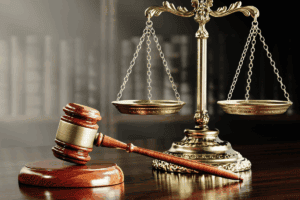The UN human rights chief, Volker Turk, voices deep disappointment as Australians reject greater rights for Indigenous citizens in a recent referendum.

The United Nations human rights chief on Tuesday said he was “deeply disappointed” that Australians had roundly rejected greater rights for Indigenous citizens in a referendum.
Speaking after observing the week of silence called for by many Indigenous leaders following the result, Volker Turk said that while the referendum had failed, the issues it sought to address would not go away.
Simmering racial divisions were exposed earlier this month when just over 60 percent of Australians voted no in a referendum on acknowledging Indigenous Australians within the 1901 constitution.
“I am deeply disappointed at the missed opportunity to officially recognise Aboriginal and Torres Strait Islander Peoples in Australia’s constitution and give them a greater voice alongside the country’s parliament,” Turk said in a statement.
“However, I am encouraged that Australia is having a deeply important debate on the significant levels of exclusion and disadvantage suffered by Indigenous Peoples.”
ALSO READ: Racism still rife in Australia, vote shows
Turk said it was heartening that polling data showed younger Australians were more in favour of constitutional change.
He called for reconciliation for all Australians in a climate devoid of “hate, racism and fear-mongering”, the statement said.
The UN high commissioner for human rights said he was shocked by the level of scaremongering, misinformation and disinformation during the referendum campaign.
Some social media posts suggested the referendum proposal would lead to land seizures, create a South African-style system of apartheid or was part of a UN plot.
“While this particular referendum may have failed, the issues that it sought to address will not fade,” said Turk.
ALSO READ: Australia admits ‘national shame’ of failing to help Aboriginals
“Realising rights to equality, to self-determination and to participation of Indigenous Peoples in decisions that affect them, including through their self-governing bodies, remains central to Australia’s future.
“Political leaders must work to unite rather than divide Australians on this issue and intensify efforts to reach out to the First Peoples of Australia, on a basis of full equality and mutual respect, to find alternative ways of addressing their continued exclusion and disadvantage.”
Aboriginal Australian leaders ended their vow of silence on Monday to denounce millions of their compatriots for rejecting the landmark push for Indigenous rights, saying that the referendum result would be “etched into Australia’s history forever”.
If passed, the reforms would have created a consultative body — a so-called “Voice” to parliament — to help tackle the inequalities that plague Aboriginal communities.
Aboriginal Australians make up 3.8 percent of the country’s 26 million inhabitants.
– By: © Agence France-Presse
ALSO READ: Uluru closed to climbers after crowds make final ascent
Support Local Journalism
Add The Citizen as a Preferred Source on Google and follow us on Google News to see more of our trusted reporting in Google News and Top Stories.








